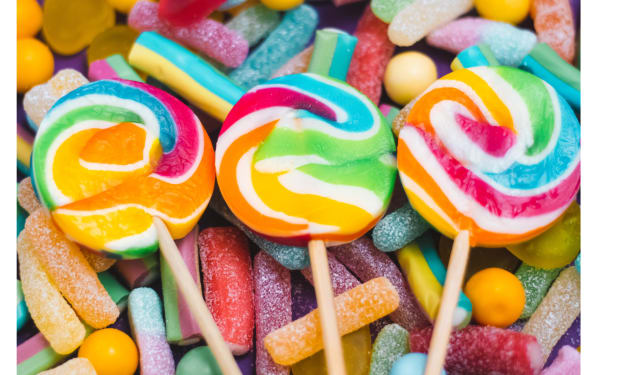The Good Side of Envy
Every day situations arise where individuals compare themselves to others in terms of belongings, experiences, qualities, etc., and if we are not favored - even if we find it hard to admit it—we feel annoyed.

This uncomfortable feeling when someone does very well or achieves something we want, as well as the pleasure that appears when something goes wrong with that same individual, is a human reaction known as envy.
This feeling does not allow us to pay attention to our life or to surpass ourselves. However, research such as that carried out at the University of Texas, in Austin, shows that this emotion makes it possible for us to understand the place where we are in order to counteract it.
To reach this conclusion, scientists Sarah Hill and David Buss carried out a study in which they divided a group of students into two: group A was control, while group B was asked to remember situations in which they had felt envious of friends or acquaintances, in order to awaken this emotion.
Then all the participants were given to read interviews with students of similar ages in which they answered about their goals, accomplishments, and other topics. The contents were not real, but had been designed by the researchers.
The work resulted in group B students—the "envious ones"—spending more time reading the interviews. Also, in a later memory test of what they remembered from the text, they expressed much more detail, demonstrating that they had been more attentive to potential competitors.
In this way, this state of mind can be seen—according to the opinion of evolutionary psychologists—as something that motivates us to improve, differing from other studies that present only the unfavourable side that this feeling can produce.
University of Tilburg in the Netherlands

Neils Van de Ven, from the University of Tilburg in the Netherlands, is another researcher who tries to look for the positive side of envy. In one of his works on the subject he asked university students to see the profile of a successful student, and imagine healthy envy, malicious envy or admiration. After that, they did a mental exercise.
The University of Tilburg team observed that those who had felt healthy envy were making more of an effort at the task, and even their scores were better than those who had experienced admiration.
Envy has been and is also studied from the neural circuits it stimulates, thus allowing for better understanding.
Researchers from the National Institute of Radiological Sciences of Japan, working with volunteers who imagined themselves confronted with characters of greater or lesser status or success, were able to see through images of the brain that when the participants experienced this feeling the brain regions involved in the recording of physical pain were turned on.
They also observed that the deeper the sensation, the more the pain centers of the anterior cingulate cortex were activated, among other areas.
On the other hand, if they were asked to imagine that the envied person fell into disgrace, the brain reward circuits were activated, also in proportion to how big the envy was.
Those who felt it most reacted to the news of another's misfortune with a comparatively more active response in the striatal dopaminergic centers.
Discovering the Brain and Mind

Envy seems to be common in our lives, but we manage it and keep it at bay thanks to our executive function of self-control.
However, as presented in several articles in the journal Discovering the Brain and Mind, self-control can easily be diminished by daily demands, lack of time, little rest, low blood glucose, or the effort we make to control ourselves.
Imagine that we fight with our partner in the morning and get very angry, when we arrive at our workplace we must act in a pleasant and smiling way with our colleagues who bought chocolates to share and celebrate a success we achieved as a team.
This requires a great effort that exhausts our resources of self-control, which can make us unable to resist temptation and, despite being on a diet, find ourselves eating a good number of chocolates.
Scientists Jan Crusus and Thomas Mussweiler of the Department of Psychology at the University of Cologne, Germany, sought to discover whether self-control also intervenes in envy. For their study, they conducted a fictitious tasting during a carnival celebration as the floats passed by.
The chosen context was not casual, since during these celebrations people are drunk and this was one of the points that the researchers wanted to take into account for their experimentation.
They wanted to see if alcohol influenced self-control and with it the manifestation of this feeling.
During the test, the professionals carried out a draw through which people could receive a candy or a bonbon, but in reality they would always get a bonbon, since the bonbon would be obtained only by the members of the research team, who accompanied them as if they were part of the public.
The result led to the conclusion that the higher the alcohol intake, the more jealous people became towards those who achieved the bonbon.
In order to accompany the above with a control test, they also carried out "the draw," but in this second case, without participants from their team, and although people always won a candy, they were told that others had obtained the bonbon. In this situation, despite the alcohol, had not appeared envy, which makes it seem necessary the presence of the other to feel this emotion.
Another experiment was carried out in their laboratory, where they offered some participants a cookie with butter and others a delicious ice cream. In order to diminish self-control, some of them were previously subjected to complicated memory exercises.
Being tired from cognitive effort, the participants who had done the exercise had less mastery of themselves, which led them to easily feel envious and desire the ice cream that the other had; they even went so far as to offer to pay more than they should for it.
Conclusion

Summarizing we can conclude that:
All emotions are positive because they inform us of something. In the case of envy, it tells us when we are at a disadvantage with respect to others.
Envy and its intensity can be modeled through self-control.
Mental fatigue, stress, lack of sleep and alcohol decrease self-control and can accentuate envious feelings.
At this point it is worth asking if envy has evolved to the present day only to make us feel bad or upset with others.
Surely, as evolutionary scientists say, there must be another meaning, and that is to make us pay attention so that we see what to do to improve ourselves.
This evolutionary gaze also allows us to explain why human beings are comparatively less hierarchical than other primate species and with a greater desire for equity.
Knowing about our emotions—in this case envy—allows us to understand them, model them and direct them towards their most human function.
It is not necessary to feel annoyed to see ourselves impelled to improve, although that is the intention of envy and we cannot stop feeling it in the first instance, but we can model it and know that it is possible to learn from others and from their experiences to achieve a more transcendent life, passing from healthy envy to healthy social learning.
About the Creator
HowToFind .com
More info at https://howtofind.com






Comments
There are no comments for this story
Be the first to respond and start the conversation.